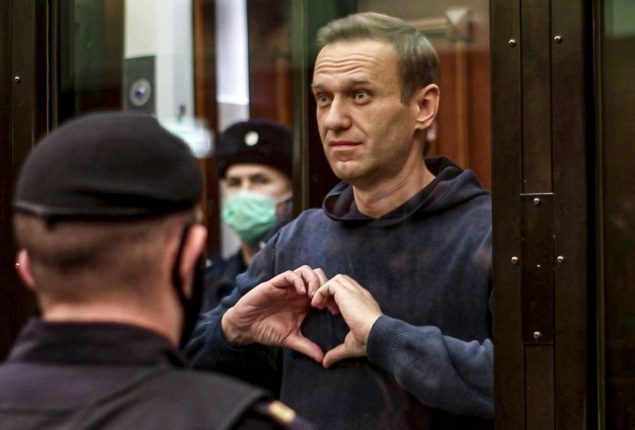Russian nationalist Critic Igor sentenced to four years in prison due to extremism
The court sentenced Igor Girkin, a former rebel commander and nationalist, to...

Russian opposition leader Navalny found dead in prison
Russian opposition leader Alexei Navalny, who died in an Arctic prison on Friday, utilized social media and exploited fatigue with the Kremlin to ascend to prominence. For years, he was the most prolific critic of President Vladimir Putin and his policies, returning to Russia after surviving a near-fatal poisoning attack that his supporters allege the Kremlin orchestrated. Upon his arrival, authorities promptly imprisoned him, and on Friday, medics were unable to revive him when he lost consciousness after going for a walk, as stated by the prison service.
During his time behind bars, the 47-year-old appeared in grainy videos from makeshift court hearings, daringly slamming Putin over his offensive in Ukraine. His message conveyed to fans through social media content, contrasted dramatically with that of Putin, a Soviet-styled, 71-year-old former KGB agent who has ruled for over 20 years.
“(Russia) is floundering in a pool of either mud or blood, with broken bones, with a poor and robbed population, and around it lie tens of thousands of people killed in the most stupid and senseless war of the 21st century,” Navalny said in one statement.
His criticism, which resonated with thousands of young supporters, was a source of irritation for a Kremlin that rights groups accused of wiping out dissent by any means necessary. His death will only exacerbate these concerns. In 2018, he campaigned across the country to be president, published corruption investigations that embarrassed the Kremlin, and rallied massive crowds onto Russia’s streets.
Despite facing jail, his return to Russia in January 2021 put him on a collision course with Putin after Navalny blamed the poisoning attack in Siberia on the Kremlin. “I’m not afraid, and I call on you not to be afraid,” he said in an appeal to supporters as he landed in Moscow, moments before authorities detained him on charges linked to an old fraud conviction. His arrest spurred some of the largest demonstrations Russia had seen in decades, resulting in authorities detaining thousands at rallies nationwide calling for his release.
Navalny’s team countered Putin by releasing “Putin’s Palace,” an investigation into a lavish Black Sea mansion that his team claimed Putin received through corruption.
The expose compelled a rare denial from Putin, who quipped that, if his security services had truly been behind the poisoning, they would have finished the job.
While Navalny confidently trafficked in memes, Putin is known both for eschewing the Internet and for asking a teenager who wanted him to follow his YouTube channel: “What should I sign?“ A similar Navalny corruption video targeting then Prime Minister Dmitry Medvedev spurred large demonstrations in 2017, with protesters carrying rubber ducks which became a symbol of the protests.
Before the presidential election in 2018, Navalny toured cities across the country to drum up support, but authorities barred him from running due to the old fraud charge.
“(Putin) fears me and the people I represent,” he told the news.
Before that, he had challenged Sergei Sobyanin to become Moscow mayor and forced a runoff. Navalny was a convincing public speaker at rallies and in courtrooms and rallied protesters around home-grown slogans like “the party of crooks and thieves” to slam the ruling United Russia party. However, he was tainted by an early foray into far-right nationalism, and a pro-gun video from 2007 routinely resurfaced in which he compared people from the ex-Soviet South Caucasus region to cockroaches.
Navalny also remains a fringe figure for a large portion of Russian society, who support the Kremlin’s official portrayal of him as a Western stooge and convicted criminal.
Catch all the International News, Breaking News Event and Latest News Updates on The BOL News
Download The BOL News App to get the Daily News Update & Follow us on Google News.